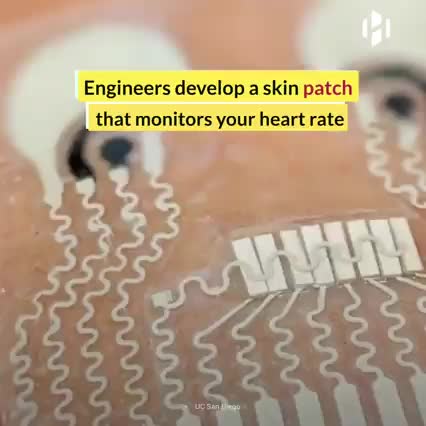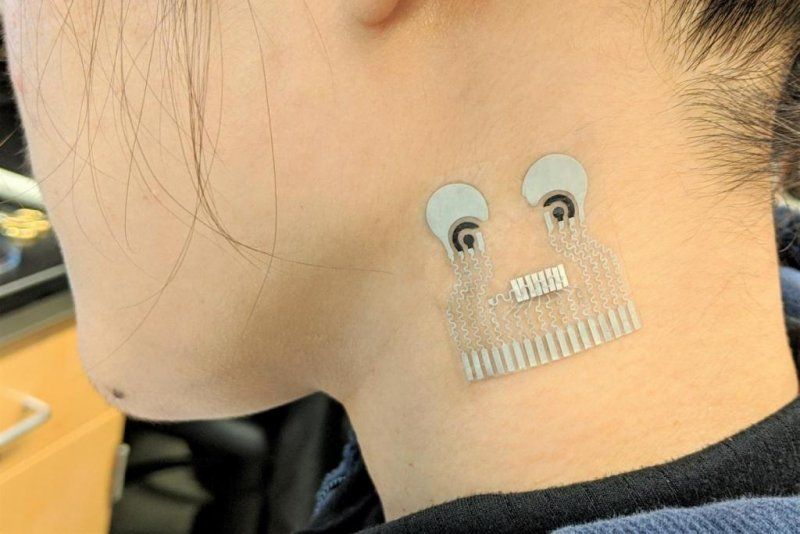
Category: health – Page 315

Medical Diagnosis Software With Just A Smart Phone — The Future Is Arriving
Monitoring your vital signs is becoming easier and easier these days, critical if you want to keep track of your general health and well being, and incredibly useful if you want to see how a life style, or dietary, change is playing out. In this video I look at two new companies that are utilising mobile phones to measure a whole raft of biometric data, simply and easily, and clinically tested to deliver medical-grade accuracy. And these are just first generation versions, who knows where this will take us, and what we will be able to monitor quickly and easily in the next few years.
Medical Diagnosis Software With Just A Smart PhoneIn the near future, your phone or a wearable of some description, will constantly be able to monitor all your health signs continuously ready to alert you to any worrying signs, and what they can do today is just the beginning of where we are heading.
With AI powered deep learning and other computing techniques, more and more analysis will become easily and quickly measured at home, so you can track all your biomarkers and vital signs so you can see how you are reacting to a new treatment, or a lifestyle change, or anything else you wish to know about.
If you haven’t already seen it why not check out this video on the other technologies that are set to revolutionise our lives in the next decade.
Mike Wang — Johns Hopkins — Hallucinogens, NeuroImmunology And The Microbiome In Mental Healthcare
Hallucinogens, neuro-immunology and the microbiome — convergent approaches in mental healthcare — mike wang, johns hopkins university.
Mike Wang, is a neuro-psychiatric researcher and adjunct teaching faculty in neuroscience at the Johns Hopkins Krieger School of Arts and Sciences.
Mike is one of the youngest principal investigators at the Johns Hopkins School of Medicine and currently leads a clinical trial examining how hallucinogenic levels of over-the-counter dextromethorphan might serve as the world’s first rapid acting oral antidepressant. (Those interested in the clinical trial for dextromethorphan can.
Mike’s work has been featured in academic journals like the American Journal of Psychiatry, as well as popular outlets like Psychology Today and VICE.
Mike received his graduate training in immunology at the Johns Hopkins Bloomberg School of Public Health studying rare viral encephalitides and neuro-immune determinants of depressive disorders.
Meet the Latest ‘Super Plant’ to Fight Air Pollution
😃
Planting greenery is often touted as one solution to the threat of air pollution, but which species are the most effective against this major public health hazard? Researchers at the Royal Horticultural Society in the UK set out to answer that question and in the process discovered a “super plant,” Franchet’s cotoneaster, or Cotoneaster franchetii.

IBM’s Retreat From Watson Highlights Broader AI Struggles in Health
IBM spent several billion dollars on acquisitions to build up Watson. Former senior IBM executive John Kelly once touted the initiative as a “bet the ranch” move. It didn’t live up to the hype. Watson Health has struggled for market share in the U.S. and abroad and currently isn’t profitable.
The decision to put its flagship Watson Health business up for sale underscores the wider challenge tech companies face in healthcare.
Dr. Hassan Tetteh, MD, Health Mission Chief, Dept. of Defense, Joint Artificial Intelligence Center
Dr. Hassan A. Tetteh, MD, is the Health Mission Chief, at the Department of Defense (DoD) Joint Artificial Intelligence Center, serving to advance the objectives of the DoD AI Strategy, and improve war fighter healthcare and readiness with artificial intelligence implementations.
Dr. Tetteh is also an Associate Professor of Surgery at the Uniformed Services University of the Health Sciences, adjunct faculty at Howard University College of Medicine, a Thoracic Staff Surgeon for MedStar Health and Walter Reed National Military Medical Center, and leads a Specialized Thoracic Adapted Recovery (STAR) Team, in Washington, DC, where his research in thoracic transplantation aims to expand heart and lung recovery and save lives.
In the past, Dr. Tetteh has served as Chief Medical Informatics Officer, United States Navy, and Division Lead for Futures and Innovation at Navy Medicine’s Headquarters, a Command Surgeon for the National Defense University, and as a Robert Wood Johnson Health Policy Fellow, assigned to the U.S. Congress, Congressional Budget Office, (CBO).
Dr. Tetteh served as Ship’s Surgeon and Director of Surgical Services for the USS Carl Vinson battle group in support of Operation Iraqi Freedom, deployed as a trauma surgeon to Afghanistan’s Helmand and Nimroz provinces in support of Operation Enduring Freedom, and has supported special joint forces missions to South America, the Middle East, the South Pacific, Australia, and Africa. He earned both the Surface Warfare Medical Department Officer and Fleet Marine Force Qualified Officer designations, and his military honors include two Meritorious Service Medals and the Joint Service Commendation Medal.
Dr. Tetteh is also an accomplished author, including the novel “Gifts of the Heart”, “Star Patrol” (co-authored with his son Edmund Tetteh), as well as “The Art of Human Care” and “The Art of Human Care for COVID-19″ (illustrated by his daughter Ella Bleue), and has published numerous articles on surgical innovation, health information technology, ethics, wounded warriors, and process improvement. He also serves on the board of directors for the Brooklyn, New York based Arthur Ashe Institute for Urban Health, Fayetteville, Arkansas based Champions for Kids, and Miriam’s Kitchen, a Washington, D.C. based nonprofit that works to end chronic homelessness.
Dr. Tetteh received his B.S. from State University of New York (SUNY), his M.D. from SUNY Downstate Medical Center, his M.P.A. from Harvard’s Kennedy School of Government, M.B.A. from Johns Hopkins University Carey Business School, and M.S. in National Security Strategy with a concentration in Artificial Intelligence from the National War College. He completed his thoracic surgery fellowship at the University of Minnesota and advanced cardiac surgery fellowship at Harvard Medical School’s Brigham and Women’s Hospital. Dr. Tetteh is a Certified Professional in Healthcare Information and Management, board certified in thoracic surgery, general surgery, clinical informatics, and healthcare management, and is a Fellow of the American College of Surgeons and Fellow of the American College of Healthcare Executives.

Incredible Sneak Peek of Mars Landing Sent Back
The six-wheeled robot’s latest data since touching down yesterday include a series of images captured as the rover’s “jet pack” lowered it to the ground.
Less than a day after NASA ’s Mars 2020 Perseverance rover successfully landed on the surface of Mars, engineers and scientists at the agency’s Jet Propulsion Laboratory in Southern California were hard at work, awaiting the next transmissions from Perseverance. As data gradually came in, relayed by several spacecraft orbiting the Red Planet, the Perseverance team were relieved to see the rover’s health reports, which showed everything appeared to be working as expected.
Steam Vs Infrared Portable Sauna. TESTED
We all know the benefits of saunas on our mental and physical health, indeed, I recently did a video on just that, but what about the home saunas that are available so you can get the benefits as often as you desire, without having to leave the comfort of your own home, especially relevant in the current climate and recurring lockdowns… Well I have been testing both steam and infrared varieties extensively over the last year and have put together a quick guide on the pros and cons on both types. So if you have been thinking about investing yourself, or indeed you want to know which type is best for you, why not check out this video for further information. Have an awesome day…
Having already looked at the benefits of saunas, just how do home portable saunas stack up. Are they worth the expens…

New skin patch brings us closer to wearable, all-in-one health monitor
Engineers at the University of California San Diego have developed a soft, stretchy skin patch that can be worn on the neck to continuously track blood pressure and heart rate while measuring the wearer’s levels of glucose as well as lactate, alcohol or caffeine. It is the first wearable device that monitors cardiovascular signals and multiple biochemical levels in the human body at the same time.

New skin patch promises comprehensive health monitoring
“” This type of wearable would be very helpful for people with underlying medical conditions to monitor their own health on a regular basis,” co-first author of the study Lu Yin said in a news release.
New wearable device converts body heat into electricity.
“It would also serve as a great tool for remote patient monitoring, especially during the COVID-19 pandemic when people are minimizing in-person visits to the clinic,” Yin, a nano-engineering doctoral student at the University of California, San Diego.
In addition to monitoring chronic conditions like diabetes and high blood pressure, as well as pinpointing the onset of sepsis, the patch could help predict people at risk of becoming severely ill with COVID-19.
Scientists have developed a thin, flexible skin patch, worn on the neck, that can provide all-in-one health monitoring capabilities, including the wearer’s heart rate, blood pressure and glucose levels.